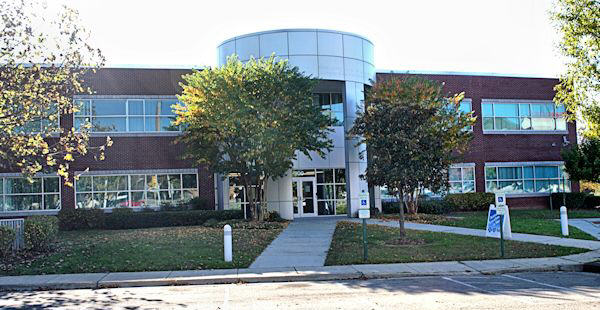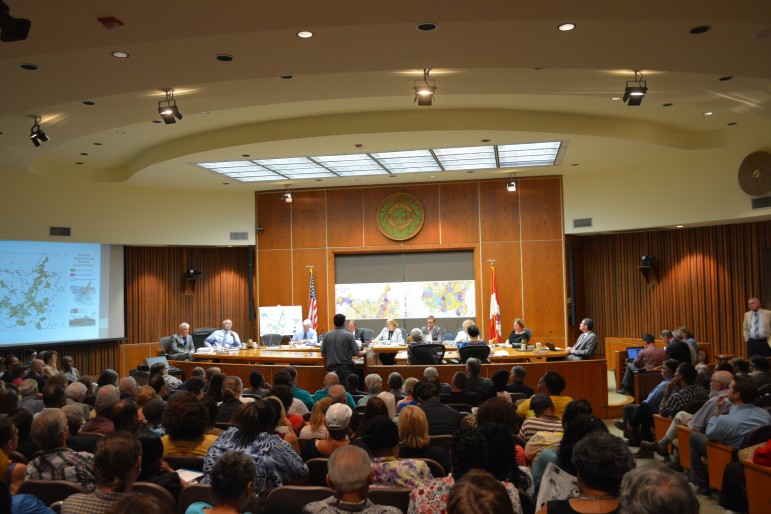The city council of Raleigh met for a work session on Tuesday, discussing the needs of the Raleigh Business Incubator.
The Raleigh Business Incubator was started to provide a space for entrepreneurs and their companies to become successful through low overhead costs and the ability to co-work with others.

City of Raleigh
The nonprofit Raleigh Business & Technology Center came under fire last summer following a city audit
James Sauls, the economic development manager for the city of Raleigh, gave the presentation on Tuesday to councilors. The goal for the incubator, he said, is to cultivate an innovative and entrepreneurial culture, providing unmet resources that these startups need. The incubator ties into the strategic plan of the city.
A 2013 audit of the center by the city turned up issues of fraud and nonpayment, at which point the company running the center was evicted and the city took over management of the facility.
In June of 2014, the city began a visioning process for the future of the incubator, which included at-times contentious public feedback meetings.
In July 2014, the mission of the incubator was “rediscovered,” according to Sauls, and a call to action soon followed. After collecting 136 responses to a survey it issued on the center, the city began making plans to draw up a request for proposals for a new management company to take over the center.
Survey Says Responsible Financial Management a Top Priority
Most respondents to the survey agreed there should be a board of directors overseeing the incubator and that the board of directors should have responsibility for overseeing all financial and investment decisions.
More than 90 percent of respondents said the budget and financial records of the incubator should be reviewed monthly and audited annually. Most felt the incubator should provide up-to-date data communications, technology infrastructure, and equipment.
Additional goals for the incubator included diversifying the city’s economy and nurturing small businesses. The functions included providing a dedicated work space as well as support services such as information technology.

James Borden / Raleigh Public Record
One of the goals of the incubator would be to help diversify the city’s economy
Objectives included having affordable and flexible rent and local collaboration between other Raleigh companies.
Many options were given for the entity that would manage the incubator, including a nonprofit organization or an industry group. Avenues for city participation would include a seat on a possible board of directors or continued funding of the incubator.
Funding options were mentioned, such as $18-20 per square foot for rent, leasing options for the entity to manage the incubator running three to seven years and the providing of facility services such as utilities and solid waste disposal.
Several criteria were mentioned for selecting the entity which would manage the incubator, including extra points for organizations employing minorities or women and the level of economic and community impact this entity could have.
“We have to make sure … the guts of this is there.”
Councilor Mary Ann Baldwin talked about up-fitting the space.
“The current condition of the building is so-so,” she said. “So there’s work to be done.”
Councilor Wayne Maiorano said that “an element of this” would be fluid and flexible.
“We’re going to have to make sure the technology, the infrastructure, the guts of this is there,” councilor Maiorano said.
Councilor John Odom, himself a small-business owner, talked about the need for a five to seven year leasing agreement with the entity because startup businesses often take as long as three years to get going. He also said there was a need for a cutoff date for entrepreneurs to get their businesses profitable.
Mayor Nancy McFarlane talked about having the companies “pay it forward” as part of the culture, which could include hiring an intern or mentoring others in the community.
Sauls, the city’s economic development manager, said that based on the feedback from council, the RFP would be tweaked and sent to council for their next meeting.

James Borden / Raleigh Public Record
An RFP for the Raleigh Business Incubator will be presented at the next city council meeting
